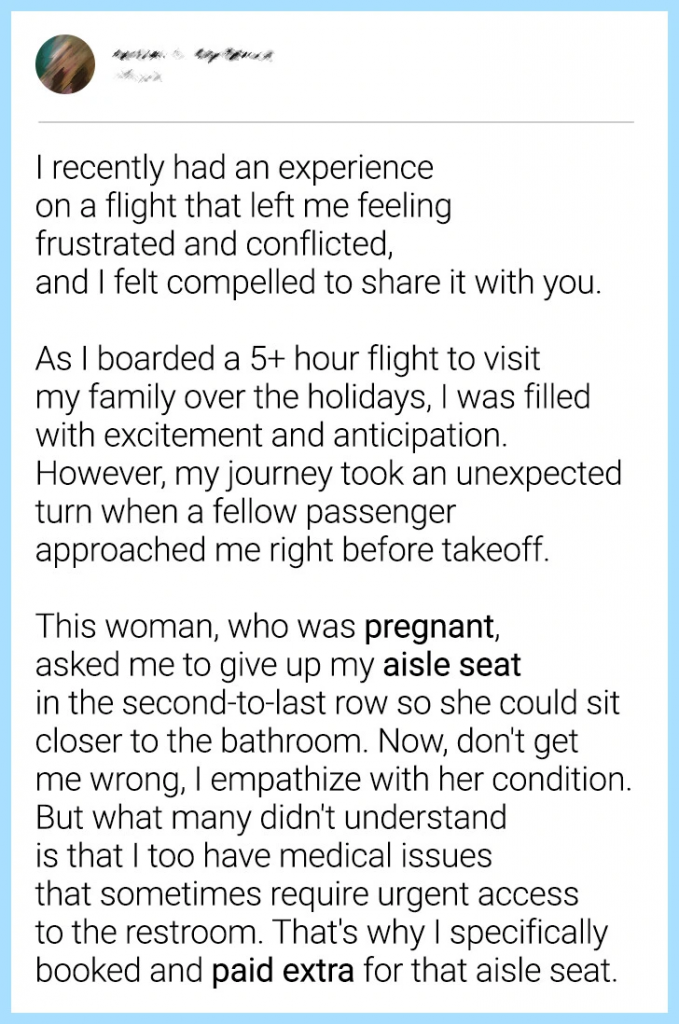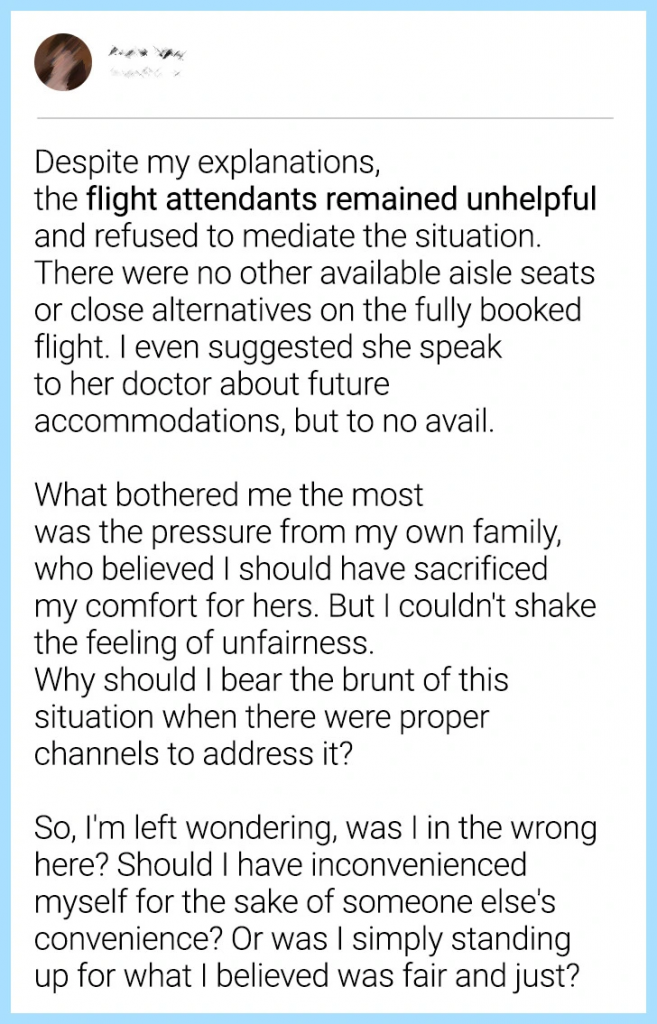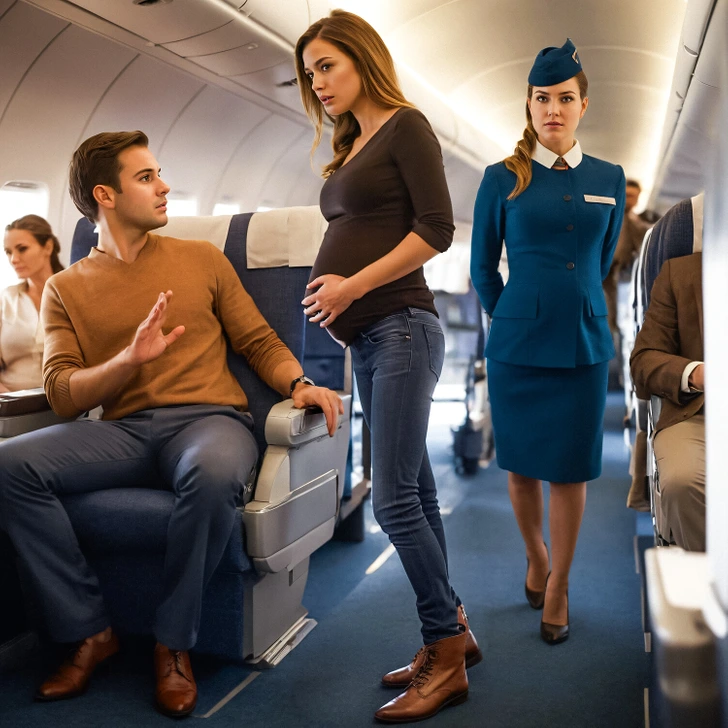The complexities of air travel often bring about moments that test both empathy and practicality. A recent story, shared by a passenger under the pseudonym John, illustrates a challenging situation where personal comfort and social responsibility came head-to-head at 30,000 feet.
John’s holiday flight took an unexpected turn when a pregnant woman asked if he would switch seats with her to allow easier access to the restroom. While her request seemed reasonable, John had specifically paid extra for his seat to accommodate his own medical needs, making the situation anything but straightforward.

The Role of Planning and Communication in Avoiding Mid-Flight Conflicts
John’s experience highlights how crucial planning and clear communication are for both passengers and airlines. For passengers with specific needs—whether medical or otherwise—selecting a seat that suits their requirements in advance can help avoid last-minute issues. Similarly, airlines could improve their communication strategies, offering passengers better avenues to negotiate seat swaps or find alternative solutions when conflicts arise. Proactive measures like these could make air travel smoother for everyone involved.
Unspoken Etiquette and the Dilemma of Competing Needs
This situation raises the question of whether there’s an unspoken hierarchy when it comes to airplane etiquette. Does a pregnant passenger’s need automatically outweigh another traveler’s pre-arranged comfort? While many of us feel inclined to help vulnerable individuals, passengers like John—who took steps to address their own needs in advance—also deserve consideration. Balancing empathy with fairness is a challenge that doesn’t always have a clear solution.

A Missed Opportunity for Flight Crew Intervention
Another layer to this story involves the apparent inaction of the flight crew. Typically, flight attendants are trained to mediate such situations and find fair compromises, but in John’s case, the flight crew chose not to intervene. This lack of support left both parties to navigate an uncomfortable standoff on their own. It underscores the importance of equipping flight crews with clear protocols and training for handling sensitive disputes like these, ensuring all passengers feel supported.
John’s Perspective: Why He Stood His Ground
John’s reluctance to give up his seat wasn’t rooted in a lack of empathy. Having paid extra for a seat that met his medical needs, he felt it was a justified decision to prioritize his own comfort. While he empathized with the pregnant woman’s situation, John also believed that the responsibility of resolving such conflicts shouldn’t fall solely on passengers, especially when they’ve planned ahead to address their own requirements.

The Fine Line Between Compassion and Self-Preservation
Ultimately, situations like these are never black and white. They compel us to navigate the often-blurry boundaries between showing compassion and honoring our own needs. While empathy encourages us to assist those in need, personal circumstances and prior arrangements also deserve respect. Striking this balance depends on the unique details of each situation and the resources available to find a fair solution.
This story serves as a powerful reminder of the unpredictability of travel. It highlights the need for thoughtful preparation, open communication, and well-established protocols to prevent such dilemmas from escalating.

As readers weigh in on this thought-provoking scenario, it’s a chance to reflect on how empathy, fairness, and proactive planning can help make air travel more harmonious for all.
